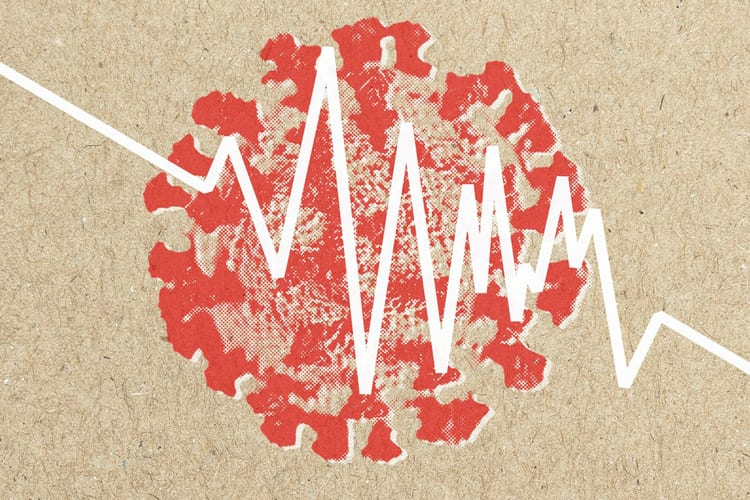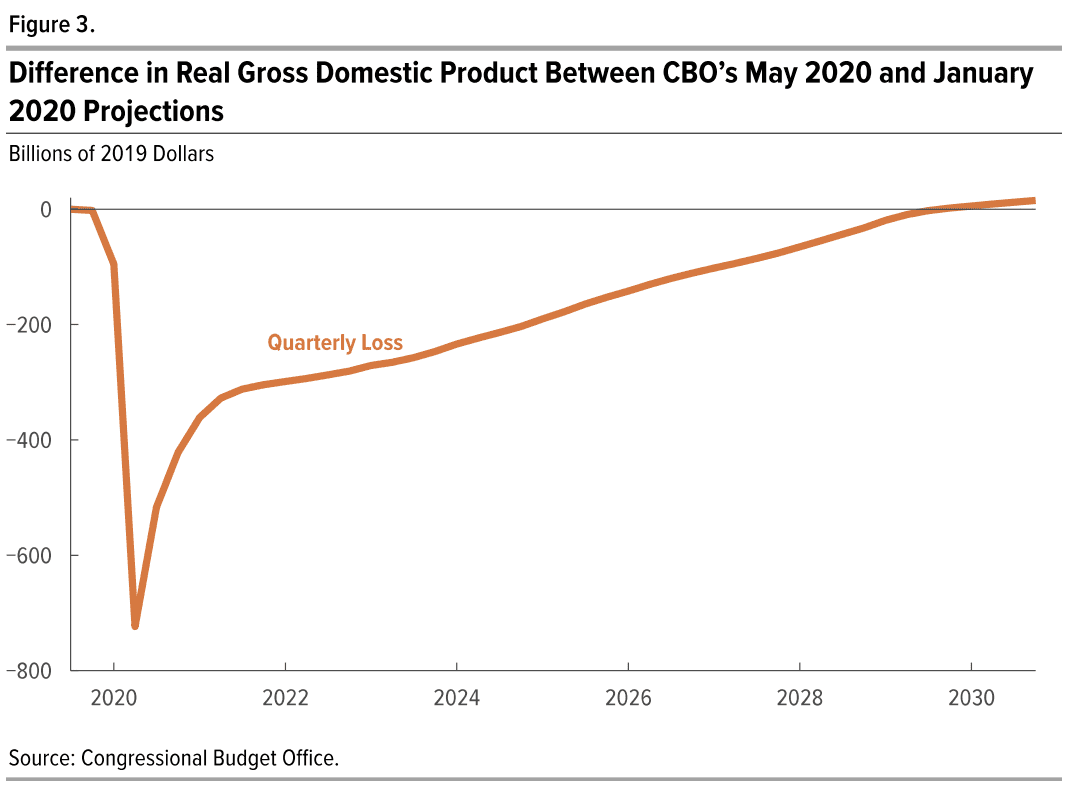What are the Long-Term Economic Impacts of COVID-19?

In many ways, the true cost of the novel coronavirus will always remain incalculable. Even though we can count how many people lost their lives, we’ll never know the true value of those losses, for instance. The same can be said for the psychological impact the pandemic and quarantine have had on millions. However, we can start to put numbers on the financial impact of the pandemic. The Congressional Budget Office recently sent a letter to lawmakers with projections for the long-term economic impact of COVID-19, and the future looks bleak.
Coronavirus May Resonate in Economy until 2029
The CBO’s letter to Congress contained a few key points. You can read the whole thing for yourself, but it basically comes down to this: the shock that the coronavirus caused in the economy will ripple through the next decade. The CBO report stated that the losses in nominal GDP would total $15.7 trillion across the next 11 years.
If that number sounds ridiculously large, it’s because it is. “The revised forecast for nominal GDP reflects a significant markdown in CBO’s projection,” according to the report. However, the real impact isn’t quite so large. Nominal GDP simply measures the cost of items in an economy but isn’t adjusted for inflation. Real GDP, on the other hand, does account for inflation. According to the CBO, the impact in real GDP loss would total $7.9 trillion.

The study did note that there is a lot of uncertainty in these projections. The situation is unstable and unprecedented, so coming up with an accurate forecast is incredibly difficult. The CBO also noted that any changes in legislation, such as another stimulus bill, would shake up these predictions.
What Does All This Mean?
Senator Bernie Sanders (I-Vermont), a former presidential candidate and leading progressive figure in Congress, and Senate Minority Leader Chuck Schumer (D-NY), released an ominous statement after receiving the CBO report.
“In order to avoid the risk of another Great Depression, the Senate must act with a fierce sense of urgency to make sure that everyone in America has the income they need to feed their families and put a roof over their heads. The American people cannot afford to wait another month for the Senate to pass legislation. They need our help now,” the statement included.
Senate Majority Leader Mitch McConnell, the other legislator that received the CBO’s letter, balked at the idea of passing another relief bill. Republicans in Congress dismissed the HEROES Act, which the CBO estimated would cost about $3.4 trillion across the next decade, as a wish list, but no alternative has come to the floor yet.









